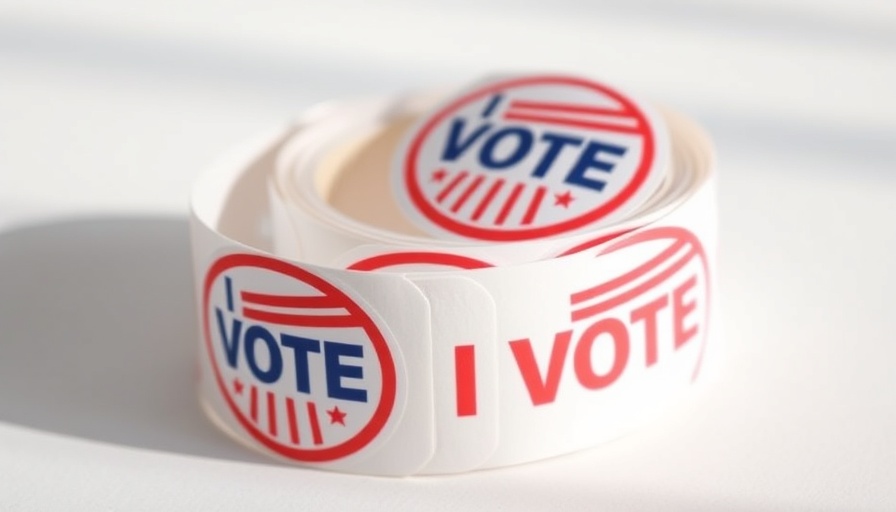
Understanding Election Anxiety: A Growing Concern
As the political landscape becomes increasingly charged, many Americans are grappling with during election cycles, often described as a perfect storm of anxiety. A recent survey by AMFM discovered that nearly 30% of respondents reported heightened anxiety tied to the election process. The contributors to this unsettling trend include the overwhelm of misinformation, sweeping negativity from news sources, and the pervasive fear of uncertain outcomes.
Why Elections Trigger Anxiety
During election periods, emotional volatility can escalate quickly. Many individuals experience not just feelings of anxiousness but can find themselves struggling with sleep disturbances, changes in appetite, and irritability. The uncertainty accompanying these elections brings about a lack of control, especially for those whose core values are challenged by the potential outcomes.
Signs You're Experiencing Election Anxiety
Recognizing election anxiety involves noting several key emotional and physical symptoms. Individuals may find themselves:
- Feeling heightened emotions like fear, worry, or anger.
- Experiencing physical symptoms such as muscle tension or headaches.
- Withdrawing from social situations.
- Struggling with concentration and dealing with racing thoughts.
This interplay of intense emotion and physical responses reveals just how deeply the current political climate can affect our mental health.
Taking Control: Strategies for Managing Election Anxiety
While the political world may feel overwhelmingly chaotic, there are effective strategies to manage feelings of anxiety surrounding elections:
- Limit Media Consumption: Setting boundaries on news intake can significantly reduce anxiety. Choose trustworthy news sources and take adequate breaks from screens.
- Practice Mindfulness: Mindfulness techniques, including meditation and deep breathing exercises, can provide grounding and help ease anxious thoughts.
- Focus on What You Can Control: Although the election's outcome is beyond one’s direct influence, individuals can foster a sense of agency by engaging in self-care practices and taking part in the democratic process by voting.
- Connect with Core Values: Reflecting on personal values during this tumultuous time can foster a sense of purpose, guiding decisions and actions that align with one’s beliefs.
These actionable insights not only help in managing anxiety but also empower individuals to maintain a sense of stability amidst uncertainty.
Future Predictions: The Impact of Elections on Mental Health
Looking ahead, it can be valuable to consider how evolving political dynamics may affect public mental health. Given the pervasive use of digital media, misinformation, and polarizing narratives, election-related anxiety may not be fleeting. It is vital that we prioritize mental health discussions, addressing how our emotional well-being intertwines with our civic engagement.
Support and Resources: Seeking Help
If you find yourself struggling with anxiety this election season, it’s crucial to seek support from mental health professionals. Therapy and counseling can offer tailored strategies and practical advice for coping. Many community resources also provide access to group discussions where individuals can share experiences and strategies for navigating election anxiety together.
Conclusion: Your Emotional Well-Being Matters
Elections are part of a vibrant democracy, but they can take a toll on emotional health. By employing effective strategies to manage anxiety—from mindfulness to establishing boundaries around media consumption—you can cultivate resilience. Remember, it’s not just about surviving an election; it’s about thriving despite its challenges. Make the conscious choice to prioritize your mental health throughout this political season.
 Add Row
Add Row  Add
Add 




 Add Row
Add Row  Add
Add 

Write A Comment